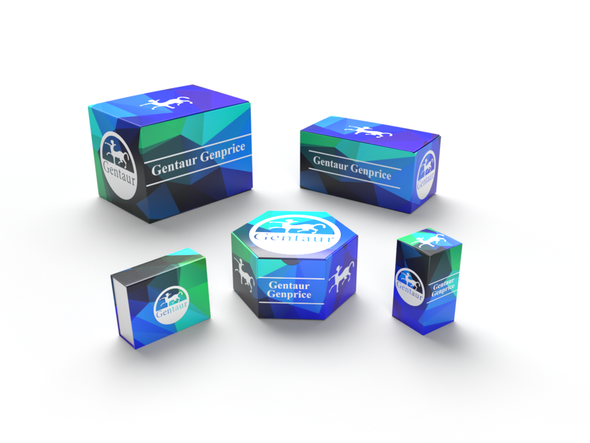740
Human Glutathione S Transferase Alpha 1 (GSTA1) ELISA Kit | AE62182HU
- SKU:
- 740-AE62182HU
- Availability:
- Usually ships in 5 working days
Description
Human Glutathione S Transferase Alpha 1 (GSTA1) ELISA Kit | AE62182HU | Gentaur UK, US & Europe Distribution
Species Reactivity: Human (Homo sapiens)
Abbreviation: GSTA1
Alternative Name: GSTa1; GST2; GSTA1-1; GTH1
Application: ELISA
Range: 62.5-4000 pg/mL
Sensitivity: 27.4 pg/mL
Intra-Assay: ≤4.8%
Inter-Assay: ≤9.4%
Recovery: 0, 95
Sample Type: Serum, Plasma, Other biological fluids
Detection Method: Sandwich
Analysis Method : Quantitive
Test Principale: This assay employs a two-site sandwich ELISA to quantitate GSTA1 in samples. An antibody specific for GSTA1 has been pre-coated onto a microplate. Standards and samples are pipetted into the wells and anyGSTA1 present is bound by the immobilized antibody. After removing any unbound substances, a biotin-conjugated antibody specific for GSTA1 is added to the wells. After washing, Streptavidin conjugated Horseradish Peroxidase (HRP) is added to the wells. Following a wash to remove any unbound avidin-enzyme reagent, a substrate solution is added to the wells and color develops in proportion to the amount of GSTA1 bound in the initial step. The color development is stopped and the intensity of the color is measured.
Product Overview: Cytosolic and membrane-bound forms of glutathione S-transferase are encoded by two distinct supergene families. These enzymes function in the detoxification of electrophilic compounds, including carcinogens, therapeutic drugs, environmental toxins and products of oxidative stress, by conjugation with glutathione.GSTa1 encodes a glutathione S-tranferase belonging to the alpha class. The alpha class genes, located in a cluster mapped to chromosome 6, are the most abundantly expressed glutathione S-transferases in liver. In addition to metabolizing bilirubin and certain anti-cancer drugs in the liver, the alpha class of these enzymes exhibit glutathione peroxidase activity thereby protecting the cells from reactive oxygen species and the products of peroxidation.
Stability: The stability of ELISA kit is determined by the loss rate of activity. The loss rate of this kit is less than 5% within the expiration date under appropriate storage condition. The loss rate was determined by accelerated thermal degradation test. Keep the kit at 37°C for 4 and 7 days, and compare O.D.values of the kit kept at 37°C with that of at recommended temperature. (referring from China Biological Products Standard, which was calculated by the Arrhenius equation. For ELISA kit, 4 days storage at 37°C can be considered as 6 months at 2 - 8°C, which means 7 days at 37°C equaling 12 months at 2 - 8°C) .






